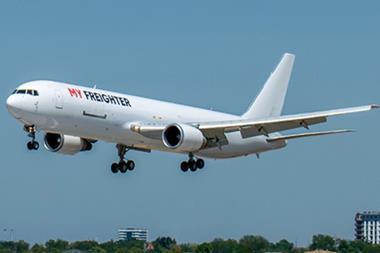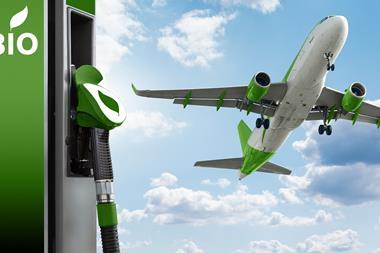The air cargo industry must “move into the next century” and speed up the process of digitisation or risk losing marketshare to integrators and start-ups.
Speaking during a debate on the use of digital technology at Air Cargo Europe, a panel of industry participants agreed that air cargo could do more to make use of e-commerce and digital processes.
First up, Lufthansa Cargo board member products & sales Alexis von Hoensbroech, who comes from a passenger background, said he was surprised by the lack of digitisation amongst cargo airlines.
He also had a stark warning for the industry if it failed to keep up with integrators.
“It is time for the industry to move on and move into the next century because if we don’t do it then others will do it for us,” said von Hoensbroech.
“There are competitors around, such as integrators, that have much more highly digitised information chains and there are other internet firms that want to move into our industry.
“We as an industry are highly vulnerable to such digital attacks if we don’t digitise. Digitising improves transparency and it improves quality – a paper air waybill that requires copying is a source of errors. If you copy digitally, this does not happen.”
IATA head of cargo e-business management Guillaume Drucy said that electronic air waybills had now achieved a market penetration of around 25 per cent.
He hoped this figure would rise as high as 80 per cent within the next two years. He added that he felt the air cargo industry had about a two to three year period to improve its digitisation or risk losing marketshare.
But he said the industry was adopting a proactive approach.
“Nobody has a crystal ball,” he said, “but what I can tell you is that I’ve never seen so much commitment from the industry leadership as I have seen today.
“I think the willingness and readiness is there. There is a two or three year opportunity to get this right.”
Accenture Freight & Logistics practice managing director Marcus Fromm said he expected the air cargo industry to continue to lose marketshare to integrators because of the business-to-consumer solutions they were able to offer.
He added that he felt the industry would see new participants joining.
“Time is running out; we cannot wait another 15 years to still talk about how the digitisation of processes went forward.
“I think to be part of a successful future industry community there needs to be action now and it needs to be far outside of the industry scope and family we see today.
“So if you ask me what I see in the future, I think we will have a different family and a growing family.”
One area of the industry that has made progress in the area of digitisation is freight forwarders.
Last year, Kuehne+Nagel launched its FreightNet solution which is an online booking portal.
K+N executive vice president air logistics Tim Scharwath said he felt the continued process of digitisation in airfreight would require a push from the outside.
He said: “The pressure is not big enough at the moment to do something. But if a disruptive mover comes into play everyone will probably shift gear and start working on it much faster than we are doing so now.
“The way it works now, it works, but it can be improved. However, the pressure is not big enough to improve it yet and that will come one day.”










